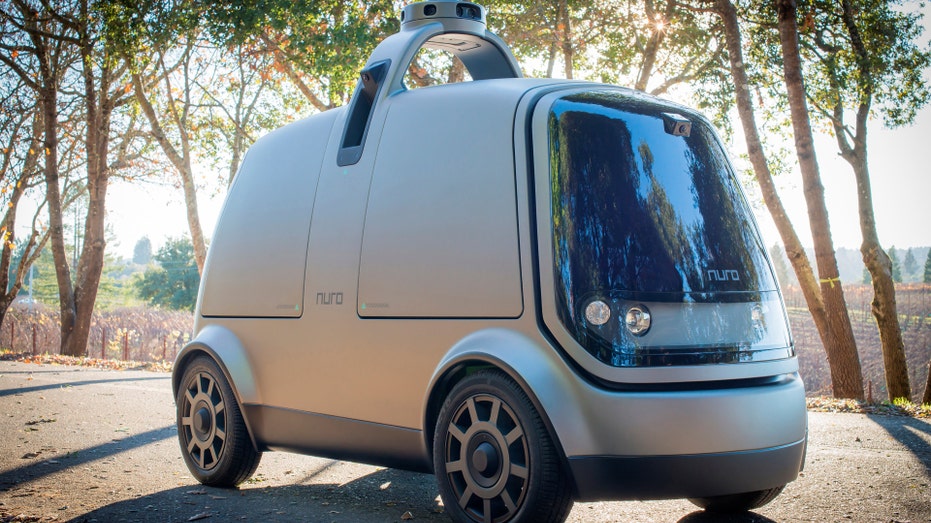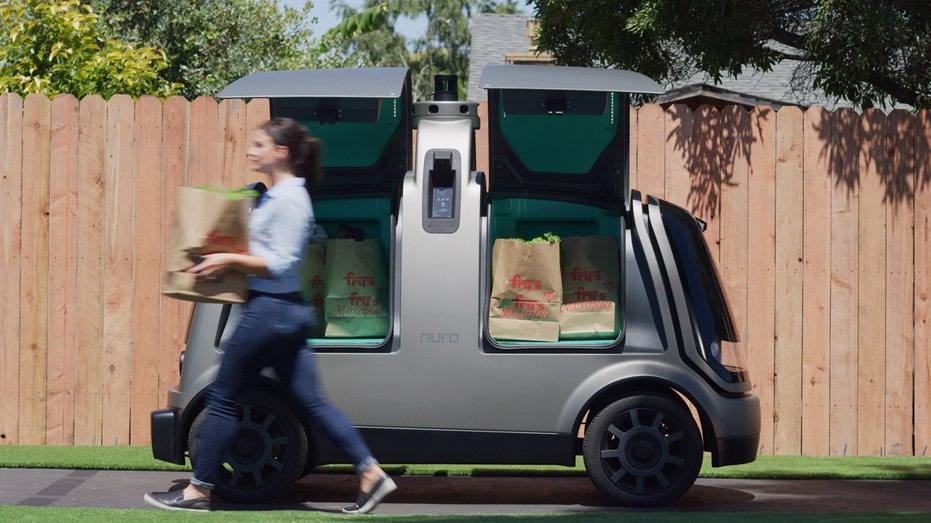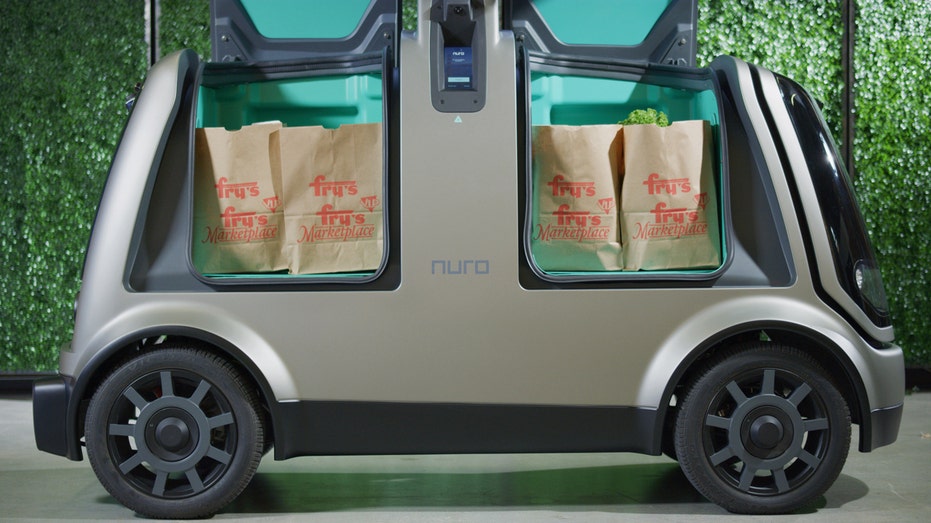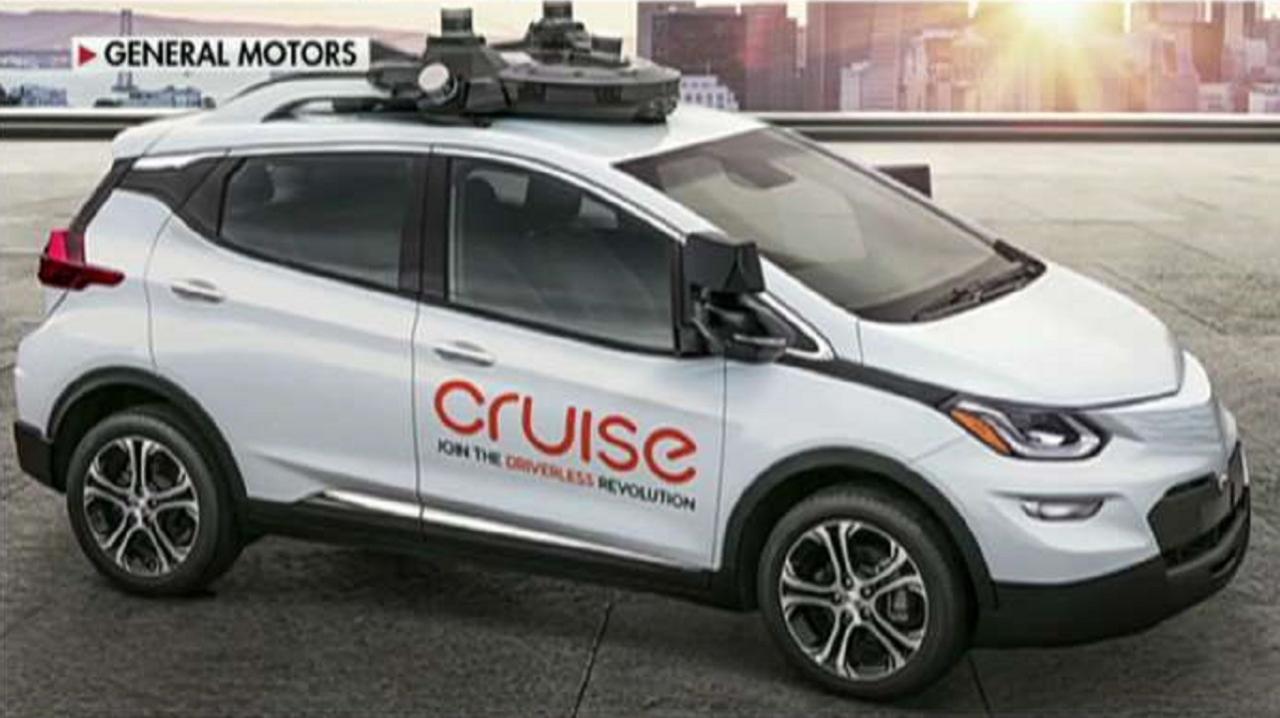US highway agency approves autonomous vehicle
The driverless car has no human safety requirements
DETROIT — For the first time, the U.S. government’s highway safety agency has approved a company’s request to use a self-driving car that doesn’t meet federal safety standards for human-driven cars and trucks.
The National Highway Traffic Safety Administration granted temporary approval for Silicon Valley robotics company Nuro to run a low-speed autonomous delivery vehicle, without side and rear-view mirrors and other safety provisions required of cars and trucks driven by humans. Also not on the safety feature list; windshield wipers, steering wheels or brake pedals.
The driverless cars previously were subject to federal standards for low-speed vehicles that travel under 25 miles per hour. Those didn’t need steering wheels or brake pedals and didn’t have to have human backup drivers.

The self-driving delivery vehicle from Silicon Valley startup Nuro, intended to be used for local commerce, is shown in this photo taken in San Francisco, California, U.S. Courtesy of Nuro/Handout via REUTERS
Nuro vehicles can be monitored and controlled remotely by a human operator if needed.
WALMART TO TEST SELF-DRIVING VEHICLE GROCERY DELIVERY
In December, Nuro announced plans to use its low-speed vehicles, called “R2,” in partnership with Walmart to deliver groceries to customers in Houston. The service was to start early this year and use the vehicles as well as automated Toyota Prius hybrid cars. Nuro also was testing deliveries with Kroger in Arizona and Houston.
Under the temporary approval, Nuro will have to make real-time safety reports to the agency. Nuro also will have to hold regular meetings with the agency and reach out to the community in areas where the vehicles will travel.
KROGER'S DRIVERLESS DELIVERY TRUCKS TAKE OFF IN ARIZONA
“NHTSA is committed to working with industry and key stakeholders to create space for innovation while prioritizing safety,” the agency said in a prepared statement.
The agency will use enforcement powers if it finds any evidence of an unreasonable risk to safety, the statement said.

Nuro's R1 driverless delivery van is seen packed with bags from Kroger's Fry's Food Stores, which will begin a test of the vehicle in Scottsdale, Arizona, U.S. Courtesy of Kroger/Handout via REUTERS
Nuro, of Mountain View, Calif., announced the R2 Thursday, the second generation of its vehicle that’s custom-built to deliver goods, but not people.
The company said it plans to deploy fewer than 100 vehicles this year, but it has permission from the federal highway agency to eventually run as many as 2,500.
The delivery vehicles, equipped with laser, camera and radar sensors, will travel with regular traffic on public roads.
CLICK HERE TO READ MORE ON FOX BUSINESS
The exemption from motor vehicle standards from NHTSA also allows Nuro to run its rear cameras all the time. Current standards require the camera displays to turn off when the vehicle is moving forward so they don’t distract human drivers, the company said.
Nuro said in a statement that the R2 has a front-end that protects pedestrians by collapsing inward. It’s also equipped with temperature controls to keep perishable goods or meals fresh.

Nuro's R1 driverless delivery van is seen packed with bags from Kroger's Fry's Food Stores, which will begin a test of the vehicle in Scottsdale, Arizona, U.S. Courtesy of Kroger/Handout via REUTERS
The vehicles make curbside deliveries to people who can open the storage compartments with a code that’s sent to them and unload the goods.
Nuro said NHTSA’s approval came after three years of work with the agency.
GET FOX BUSINESS ON THE GO BY CLICKING HERE
“By replacing heavy passenger vehicles utilized for shopping and other errands, Nuro is ushering in a new era of neighborhood-friendly and socially responsible zero-occupant vehicles,” the company said.
Company co-founder and President Dave Ferguson said the highway agency's decision “shows that exemption can mean more safety.”




















